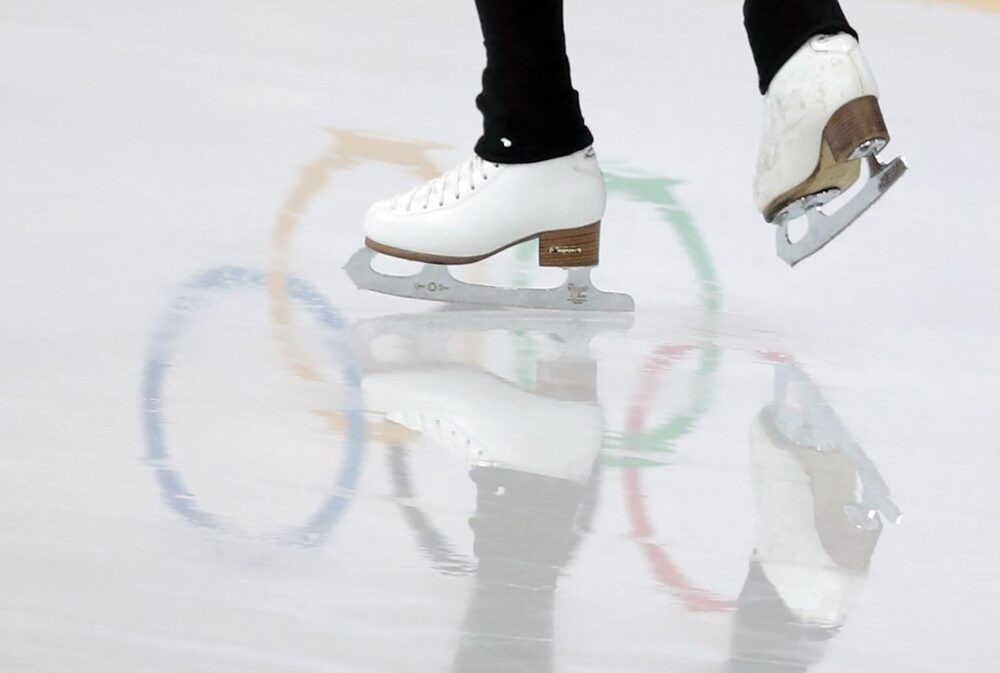
By Cate Meister
You don’t go into watching the Olympics expecting to see the gold medalist sitting alone after her win, the silver medalist screaming that she won’t go to the podium and the bronze medalist sobbing. You don’t go into watching Olympic figure skating expecting to see Kamila Valieva fall.
In an atypical Olympic Games, we’ve witnessed an atypical moment in women’s skating. Fifteen-year-old Valieva’s positive drug test from December cast doubt on whether or not she would be permitted to compete in the women’s individual competition.
Valieva, the predicted front-runner of the individual competition and winner of the women’s category of the team competition, is one of three Russian women dominating women’s skating. Alongside Anna Shcherbakova and Alexsandra Trusova, she is credited with launching “the Quad Revolution,” and the three skaters are the only women to have successfully landed a quad (a jump with a whopping four rotations) at the Olympics.
In spite of the drug test, which indicated Valieva had taken a banned heart medication that enhances the heart’s function when deprived of oxygen, the International Olympic Committee (IOC) allowed her to compete. Russia currently competes as the Russian Olympic Committee after having been banned because of its history of state-sponsored doping.
Some cited the claim that Valieva had ingested her grandfather’s medicine by mistake as justification for the choice. The IOC also said that the situation was still unclear, and Valieva had not been given sufficient time between the test’s results and the competition to prepare a defense.
The decision was condemned by many within the international skating community. NBC commentators Johnny Weir and Tara Lipinski remained silent during Valieva’s first individual performance, the women’s short program.
Valieva ranked first following her short program. She was followed by Shcherbakova in second, Japanese skater Kaori Sakamoto in third and Trusova in fourth.
The weight of the criticism that Valieva faced was clear as she stepped onto the ice for her free skate, the longer and final program of women’s skating. As a predicted winner, the center of a doping scandal, and an Olympian at 15, she was understandably serious.
Valieva’s performance was shocking, evoking audible gasps from the audience. Preceded by the near-flawless performances of her teammates, Valieva’s free skate was uncharacteristically disastrous. Falling several times throughout the performance, Valieva’s Olympic debut ended in sobbing and a fourth place finish.
Valieva’s fall from frontrunner to fourth was not a failure of her own. It was a failure of the International Olympic Committee and the adults around her.
It is difficult to watch such an immense moment of pain. Valieva was inconsolable, breaking down the moment she exited the rink. Ushered away by her coaches not long after, Valieva left a jarring scene in her wake.
Silver medalist Trusova cried as she shouted she would not go back onto the ice, while Olympic champion Shcherbakova seemed unsure what to do with herself as her coaches tried to console her teammates, leaving her alone in her victory. Sakamoto cried in joyful contrast at the notice of her third place finish.
Valieva was also greeted with harsh words from her coach, Eteri Tutberidze, who asked her why she “let it go” and “stopped fighting.” Tutberidze is known for a history of skaters with short-lived, teenage careers and a harsh training environment.
The IOC claimed that banning Valieva from the competition would have caused “irreparable harm” to her. Instead, they created an environment that forced her to confront the pressures of a high-profile doping scandal head on and tainted the Beijing Olympics for women’s figure skating.
Had Valieva been barred from competing, she might have experienced unimaginable disappointment and anger. But, the IOC would have salvaged the games for the other skaters and prevented Valieva from experiencing what she faced with the world watching.
No one can speak for what Valieva felt on the ice and in the moments following. We can imagine the immense emotional suffering, and we can imagine that the aftermath of such a shocking moment is intense. Weir called the scene “the destruction of a young person.”
It’s unclear whether or not Valieva was intentionally doping. What is clear is that in their quick decision to avoid “irreparable harm,” the IOC has caused just that.





